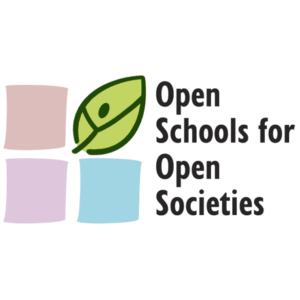Open Schooling
Open Schooling (Sotiriou et al., 2017) can be defined as an environment where schools, in cooperation with other stakeholders, become agents of community well-being; the walls around schools come down but they remain strong, sharing responsibilities with other community bodies. Non-formal learning, collective tasks and intergenerational activities are strongly emphasised; school projects are revitalised around a knowledge agenda in cultures of experimentation, diversity, and innovation. It is an open system, welcoming approaches from potential external collaborators. The school scans its external environment to respond quickly to challenges and opportunities; families are encouraged to become real partners in school life and activities; professionals from enterprises and civil and wider society are actively be involved in bringing real-life projects to the classroom. Partnerships are based on equality of relationships and opportunities for mutual learning; Relevant policymakers encourage policy buy-in and the mainstreaming of good practices and insights into policies, and hence sustainability and impact. Such partnerships foster expertise, networking, sharing and applying science and technology research findings across different enterprises (e.g. start-ups, SMEs, larger corporations). One example of such a collaboration is the Open Schools for Open Societies Project and the open living lab collaboration SALL – Schools as a Living Lab.

The network of the OSOS schools (Open Schools for Open Societies) consists of established partnerships consisting of institutions of formal and informal learning and provides a perfect starting point to introduce the Learning Ecologies and bring them to life. The role of the school heads is critical for the realisation of such partnerships.
 The SALL aims to open-up schools to their local communities by transforming them into Living Labs. In this way, SALL proposes a new framework for schools across Europe to approach their science education programmes, in order to make STEM teaching more relevant, systemic and inclusive for their students, collaborating with their local ecosystems and research centres, and with the active support and involvement of science centres and museums in this process. SALL proposes the living lab methodology as a new technique of unique value and possibilities for the development of open schooling activities linked to science learning. SALL brings together school communities, including teachers, students and their families, research institutions, science museums and centres, spaces of informal learning and open innovation, as well as policymakers, and engages them in intensive dialogue and mutual learning and exchange.
The SALL aims to open-up schools to their local communities by transforming them into Living Labs. In this way, SALL proposes a new framework for schools across Europe to approach their science education programmes, in order to make STEM teaching more relevant, systemic and inclusive for their students, collaborating with their local ecosystems and research centres, and with the active support and involvement of science centres and museums in this process. SALL proposes the living lab methodology as a new technique of unique value and possibilities for the development of open schooling activities linked to science learning. SALL brings together school communities, including teachers, students and their families, research institutions, science museums and centres, spaces of informal learning and open innovation, as well as policymakers, and engages them in intensive dialogue and mutual learning and exchange.
For more information on Open Schooling please refer to the Inspiring Practices in the SYNAPSES Portal.
References:
Sotiriou, S., Cherouvis, S., & Bogner, F. (2017). Open Schooling Roadmap: A Guide for School Leaders and Innovative Teachers.
1 Comment
Submit a Comment
You must be logged in to post a comment.


The idea of Open Schooling and transforming schools into Living Labs is, in my view, a very inspiring and timely educational approach. It’s fantastic to think of a school that is not isolated but fully integrated into its community, where students, teachers, families, researchers, and other social actors work together to tackle real-world challenges. This model creates a living, dynamic, and meaningful learning environment that goes beyond the traditional four walls of the classroom.
The role of the teacher in this context is even more enriched, as they cease to be mere transmitters of content and become facilitators, mediators, and co-creators of knowledge. This allows teachers to be directly involved in projects with real impact, which can greatly increase student motivation and the meaningfulness of their learning.
Moreover, this integration between science, technology, society, and local culture opens doors for a more inclusive and contextualized education, recognizing multiple forms of knowledge and learning. As a teacher, I feel this is a great opportunity to promote active and sustainable citizenship, preparing students not only for academic challenges but also for life as conscious and engaged citizens.